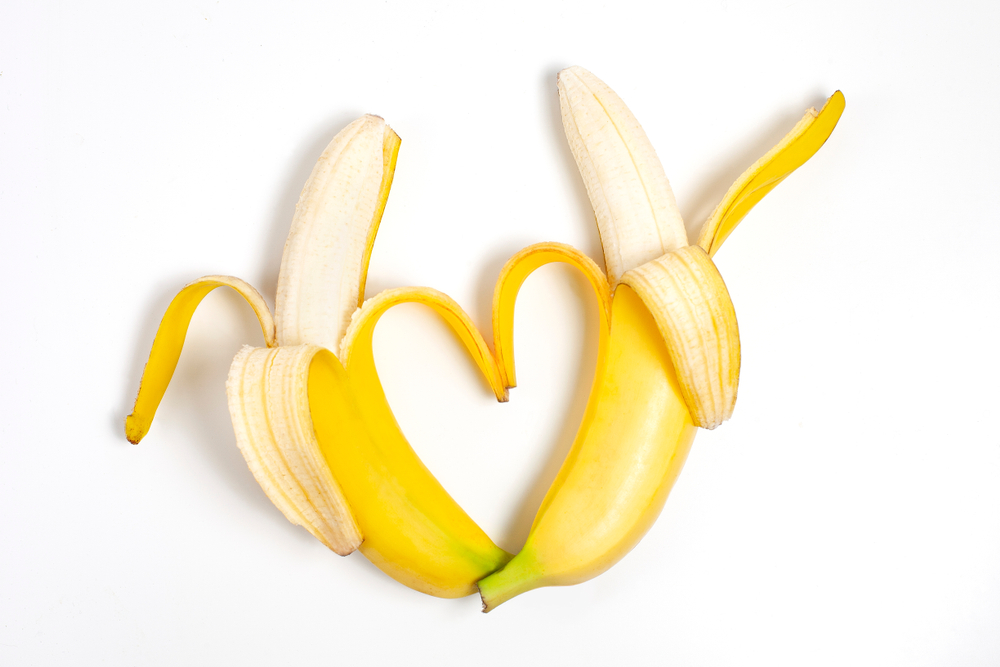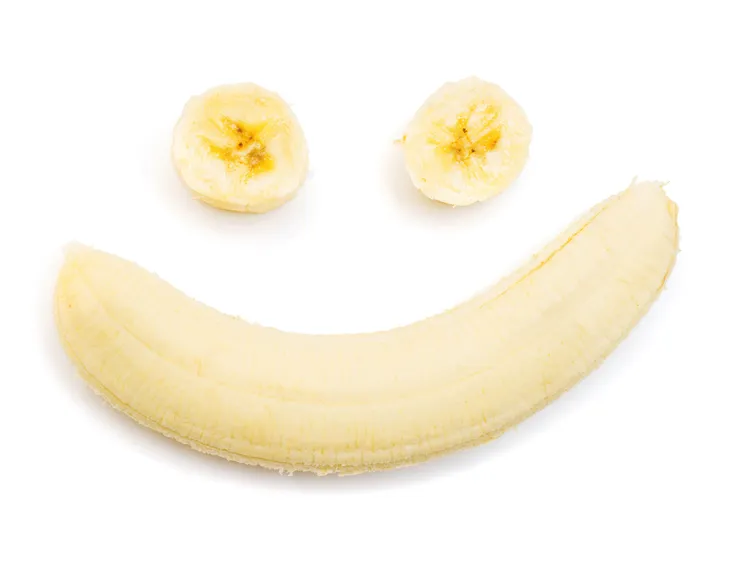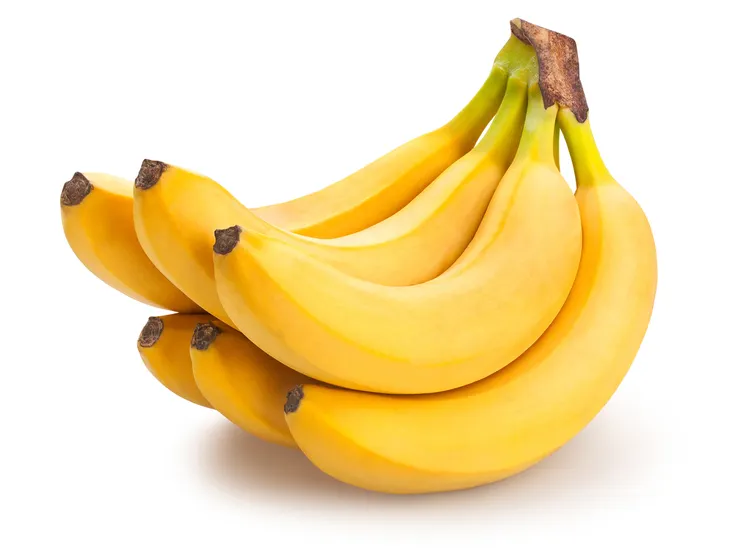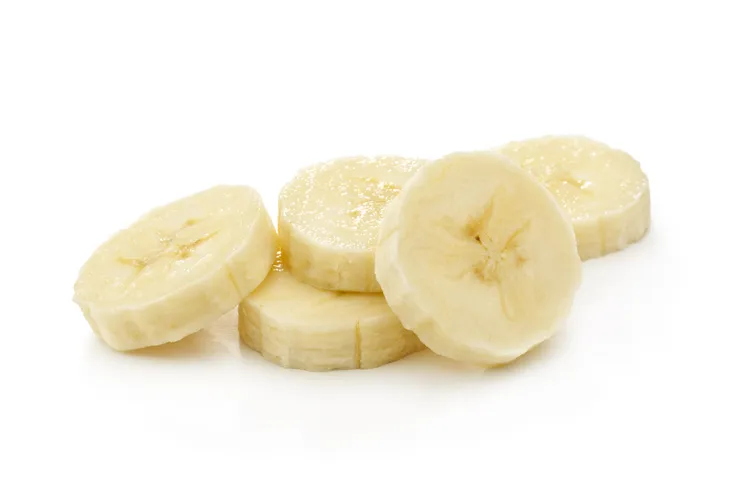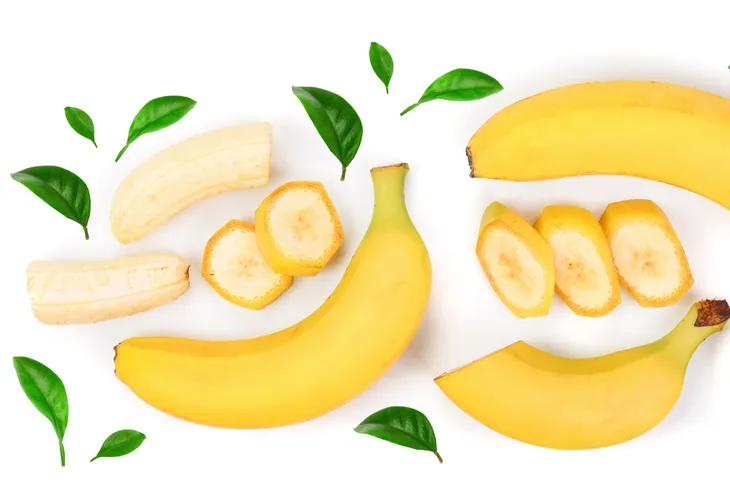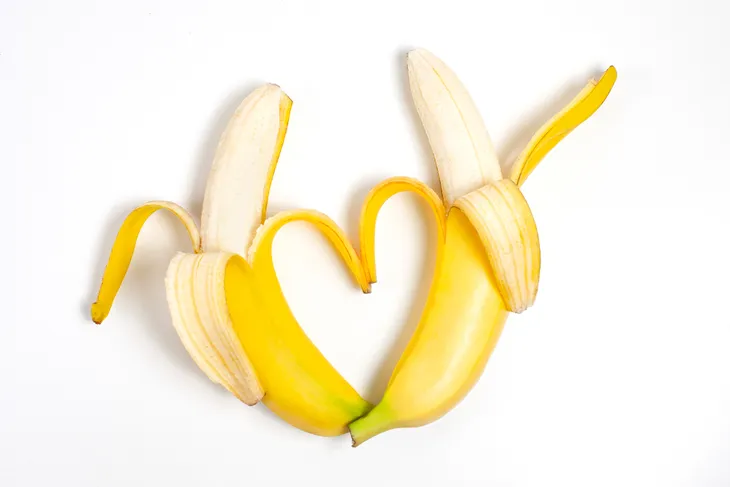Tucked into briefcases and lunch boxes, cut up into cereal or yogurt, blended into smoothies, or smeared with nut butter for an evening snack—North Americans are undeniably ape for bananas! A bunch of bananas is likely the least expensive fruit at your supermarket, which is probably why the average American consumes roughly 28-pounds of the fruit on a yearly basis, according to research from the Iowa Department of Public Health.
Here are eight a-peeling health benefits of bananas…
Bananas Boost Mood
Research from the National Institutes of Health (NIH) claims that magnesium deficiency can be a real downer on your mood. For example, decreased levels of the mineral can result in irritability, mood swings, anxiety, depression, anxiety, and even cause certain mood disorders (i.e., insomnia and depression).
One simple way to get more magnesium in your diet is by peeling and eating a banana. A medium-sized fruit delivers a whopping 27-milligrams of magnesium toward daily recommendations—320-milligrams a day for females and 420-milligrams per day for males.
Bananas Are Rich in Vitamin C
When it comes to boosting your intake of vitamin C, citrus fruits aren’t your only option. According to a 2005 research study from the National Institute of Environmental Medicine and Sweden’s Department of Urology, increasing levels of the antioxidant in your diet may prevent several diseases.
For example, a diet rich in bananas delivers the antioxidant super powers necessary for healthy blood vessel function; collagen production for muscle, bone, and tissue growth; and even helps ward off the damaging effects of free radicals, which can cause cancer. A 2005 Swedish study found that female study participants who consumed a minimum of 4 bananas per week cut their risk of renal (kidney) cancer by 50-percent.
Bananas Promote Healthy Weight
If you had doubts about the banana hardiness as a mid-afternoon or post-workout snack, put your reservations aside. One medium-sized banana provides enough carbohydrates (30-grams) and fiber (3-grams) to ward off hunger cravings and help you feel satiated for longer.
At just 110 calories, the average banana offers a portable snack that can be noshed on the go. And bananas are super versatile—in smoothies, on toast with nut butter, baked into muffins or energy bars, and even frozen with a smear of chocolate for a sweet-tooth satisfying dessert.
Bananas Curb Appetite
If you’re attempting to shed some unwanted pounds, it turns out that the smell of a banana can help curb your cravings. A research study conducted by the University of Illinois’ Smell and Taste Treatment and Research Foundation, monitored 3193 overweight volunteers and found that when they inhaled certain odors—including smells like peppermint and banana—the brain’s hypothalamus (the satiety center) was stimulated.
The study proved that smelling certain foods, like bananas, when hungry can fool the brain into thinking the body has already eaten and cause a full feeling. Overall, banana aroma was able to induce sustained weight loss in the majority of study participants over a 6-month duration.
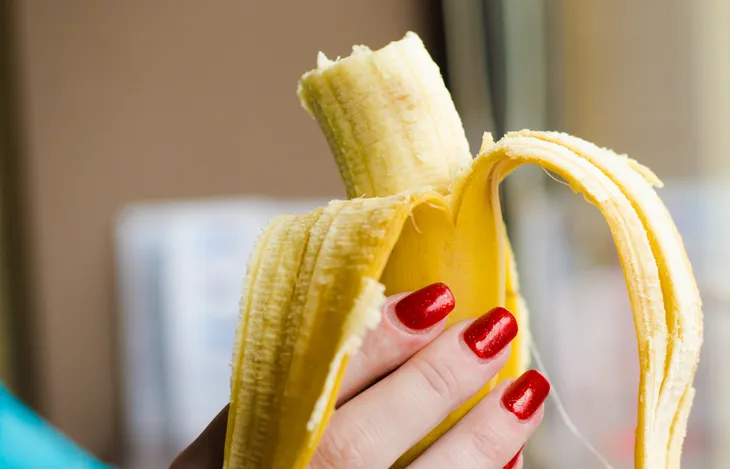 Source: Shutterstock
Source: ShutterstockBananas Soothe GI Distress
If you’ve ever had to recover from the stomach flu or a gastrointestinal illness, you may already be familiar with the BRAT diet. BRAT stands for Bananas, Rice, Applesauce, and dry Toast—all so-called “binding” foods that help relieve symptoms of stomach turbulence and diarrhea.
At the top of the BRAT diet list are bananas due to the fact that this fruit is non-irritating to the gastrointestinal tract and super easy to digest. This is also why bananas are typically one of the very first solid foods that pediatricians recommended for young children.
Bananas Help Lower Blood Pressure
Do you ever wonder why doctors often recommend bananas for patients with high blood pressure? While an average banana contains roughly 420-milligrams of potassium—it’s low in blood-pressure inducing sodium.
According to research from Blood Pressure UK, previously the UK Blood Pressure Association, potassium is one mineral that can help balance the effects of salt on the body while promoting efficient kidney function and decreasing the overall risk of stroke. In fact, eating 2 bananas each day has been proven to lower blood pressure by 10-percent.
Bananas Enhance Physical Fitness
If you have dreams of being a future Olympian or professional athlete, researchers from the Appalachian State University’s Human Performance Lab would tell you to eat your bananas.
The study monitored the athletic performance of a group of cyclists who consumed either a half a banana or a carbohydrate sports drink at 15-minute intervals. Findings revealed that the banana eaters performed as well as those who drank the sports-enhancing beverage. Keep in mind that bananas contain more natural antioxidants and nutrients compared to store-bought sports drinks.
Bananas Support Heart Health
A banana a day may keep the doctor away—and it will almost certainly protect your heart. According to a study published in the medical journal, Obesity, the high potassium in bananas holds many cardiovascular benefits when it comes to maintaining normal blood pressure, heart function, and protecting against cardiovascular disease.
The study monitored approximately 40,000 U.S. male health professionals over a 4-year period and found that those with diets rich in bananas, boasted excellent blood cholesterol levels and suffered much lower instances of heart disease and stroke. Researchers believe this stems from the heart healthy benefits of both potassium and sterols (i.e., campesterol, stigmasterol, and sitosterol) within bananas, which block the absorption of dietary cholesterol and reduce the overall risk of cardiovascular diseases.
